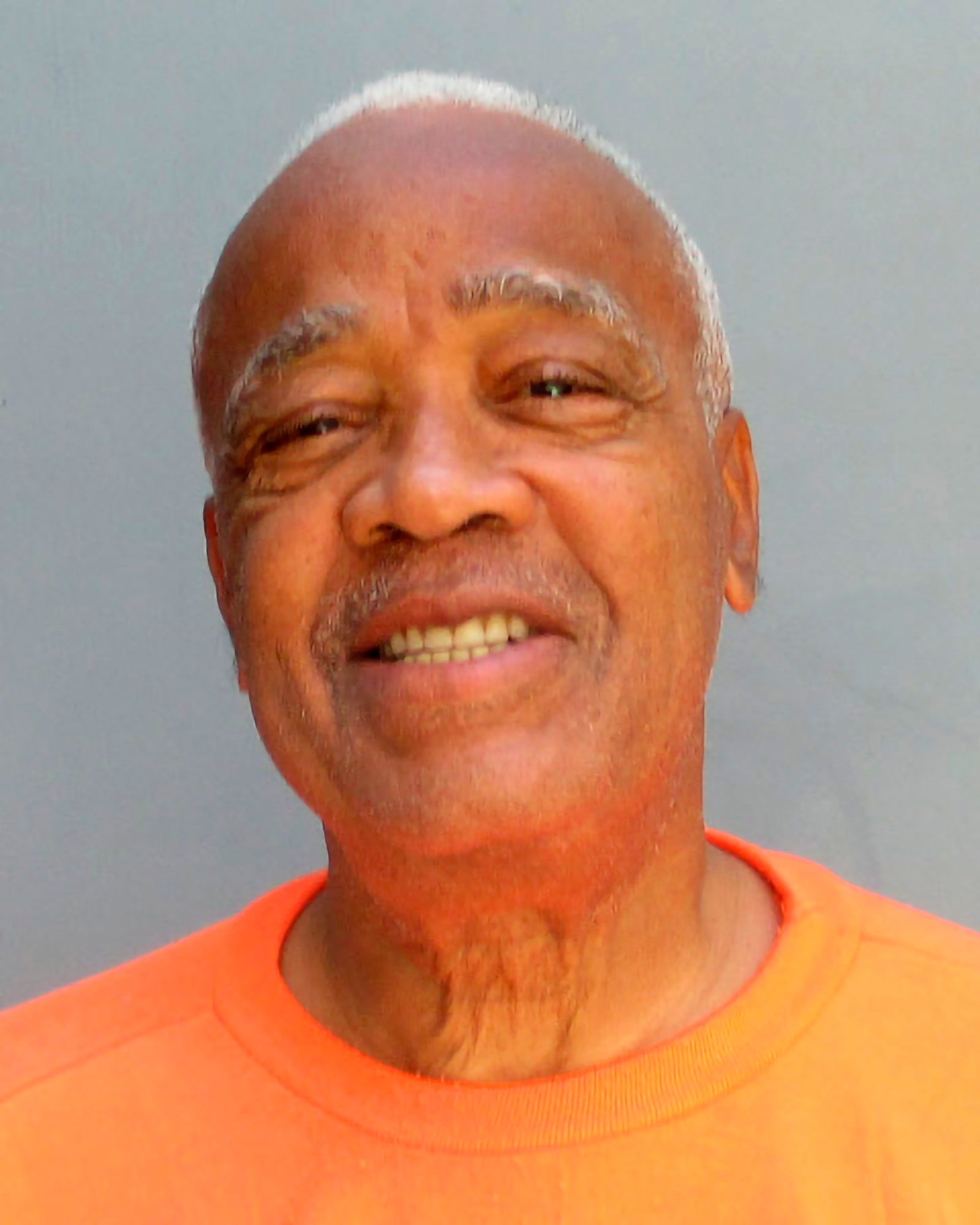Arizona death row prisoner's clemency bid rejected by board
Arizona’s clemency board has declined to recommend the governor commute a man's death sentence to life in prison, keeping the inmate's planned execution on track for his conviction in two 1980 killings

Your support helps us to tell the story
From reproductive rights to climate change to Big Tech, The Independent is on the ground when the story is developing. Whether it's investigating the financials of Elon Musk's pro-Trump PAC or producing our latest documentary, 'The A Word', which shines a light on the American women fighting for reproductive rights, we know how important it is to parse out the facts from the messaging.
At such a critical moment in US history, we need reporters on the ground. Your donation allows us to keep sending journalists to speak to both sides of the story.
The Independent is trusted by Americans across the entire political spectrum. And unlike many other quality news outlets, we choose not to lock Americans out of our reporting and analysis with paywalls. We believe quality journalism should be available to everyone, paid for by those who can afford it.
Your support makes all the difference.Arizona’s clemency board unanimously declined on Thursday to recommend that the governor commute a man's death sentence to life in prison, keeping the inmate's planned execution on track for his conviction in two 1980 killings.
The decision by the Arizona Board of Executive Clemency marks one of the last steps before Murray Hooper’s scheduled Nov. 16 execution for the slayings of William ’Pat” Redmond and his mother-in-law, Helen Phelps.
Board members rejected Hooper’s claims that he was innocent and that there wasn’t credible evidence to support his convictions.
“There is no doubt as to Mr. Hooper’s guilt,” said Mina Mendez, who chairs the board that advises Gov. Doug Ducey.
Board member Louis Quinonez said he didn’t think Hooper’s sentence was excessive based on the nature of the killings. “I find Mr. Hooper’s convictions to be lawful and authentic,” Quinonez said.
Hooper is scheduled to receive a lethal injection at the state prison in Florence, Arizona.
Authorities said Redmond and Phelps were killed after Hooper and two other men forced their way into Redmond’s home on Dec. 31, 1980. Redmond’s wife, Marilyn, was shot in the head but survived and testified against Hooper.
Two other men, William Bracy and Edward McCall, were convicted in the killings but died before their death sentences could be carried out.
Authorities say Robert Cruz, who was alleged to have had ties to organized crime, hired Hooper, Bracy and McCall to kill Pat Redmond, who co-owned a printing business. They said Cruz wanted to take over the business and was unhappy that Redmond had rejected his offers to enter into several printing contracts with Las Vegas hotels, according to court records. In 1995, Cruz was acquitted of murder charges in both deaths.
Attorneys for Hooper say Marilyn Redmon’s description of the assailants changed several times before she identified Hooper, who claimed not to be in Arizona at the time. They also allege that criminal informants who helped implicate Hooper were influenced by incentives from the police.
The defense lawyers also brought up their efforts to have fingerprint and DNA tests conducted on evidence from the two killings. The lawyers say no physical evidence ties Hooper to the killings and that testing could lead to the identification of those responsible. His convictions came in an era before computerized fingerprint systems and DNA testing were available in criminal cases.
Nearly two weeks ago, a judge rejected Hooper’s request for such testing, saying the evidence implicating Hooper was overwhelming. Hooper is appealing that decision.
Nicole List, one of Hooper’s attorneys, said the case against her client was weak. “This case was nothing without an unreliable identification from Marilyn Redmond and four paid informants,” List said.
Geoffrey Loftus, professor emeritus at the University of Washington’s psychology department, testified before the board on behalf of Hooper. He said people who witness dangerous crimes are more focused on their safety and often have hazy accounts of the details of the crimes.
“I believe that in this case the primary witness, Mrs. Redmond, did not have a very good memory of the perpetrators,” Loftus said.
Prosecutor Kirsten Valenzuela said the courts have already rejected the arguments made by Hooper’s attorneys and found Marilyn Redmond’s testimony to be credible. “This man is not innocent,” Valenzuela said.
In a letter, Pat Redmond’s children urged the board to reject Hooper’s clemency bid, saying their father, their stepmother Marilyn Redmond and her mother were tied up and shot in the head. They also pointed out that Pat Redmond's throat had been cut.
His children lamented that Hooper would have an easier death than those he attacked.
Hooper chose not to participate in his hearing, though his lawyers argued for clemency before the board.
Hooper would be the third prisoner put to death this year after Arizona resumed carrying out executions in May. The resumption followed a nearly eight-year hiatus attributed to both the difficulty of obtaining lethal injection drugs and criticism that a 2014 execution was botched.
There are 111 prisoners on Arizona’s death row, and 22 have exhausted their appeals, according to the Arizona Attorney General’s Office.